Did you know that up to 70% of women develop uterine fibroids at some point in their lives? Cysts, myomas, and fibroids are among the most common gynecological issues affecting women globally. While many of these growths are benign, they often cause discomfort, bloating, heavy menstrual bleeding, or pelvic pain. Conventional treatments range from medication to surgery, but women worldwide are increasingly turning to natural remedies for supportive care.
One ingredient that has gained attention in both traditional medicine and modern wellness circles is beet juice. This vibrant red root vegetable is not only a superfood for the heart and liver, but also a natural source of compounds that may support reproductive health. Rich in antioxidants, nitrates, and betaine, beet juice helps improve circulation, balance hormones, and support detoxification—all of which can be beneficial in managing conditions like cysts and fibroids.
In this article, you’ll discover how beet juice may help support women’s health, practical ways to prepare it, and inspiring case examples of its use. While it’s not a miracle cure, understanding its benefits could help you take an empowering step toward natural wellness.
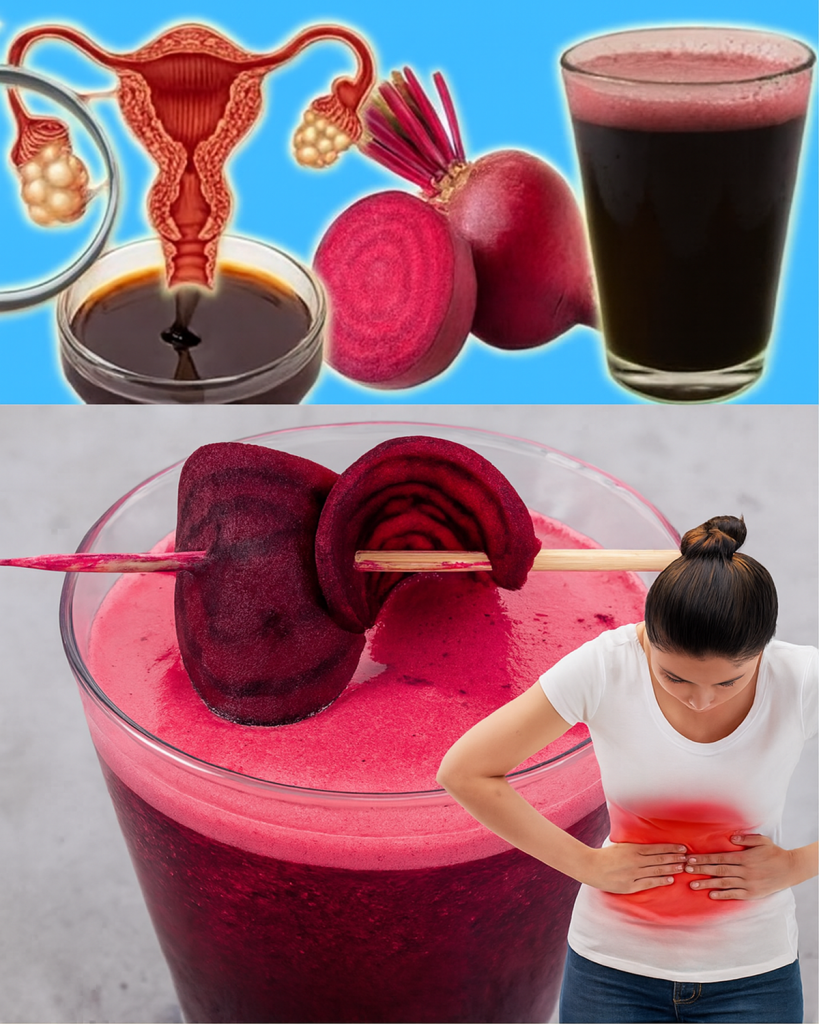
Understanding Cysts, Myomas, and Fibroids
To appreciate how beet juice may play a role, let’s first understand what these conditions are:
- Cysts: Fluid-filled sacs that can form in the ovaries, often linked to hormonal imbalances.
- Myomas (Fibroids): Non-cancerous growths in the uterus, composed of muscle and connective tissue.
- Fibroids and related conditions can cause heavy bleeding, pelvic pressure, frequent urination, and fertility challenges.
While the exact cause is not always clear, factors include:
- Hormonal imbalance (especially estrogen dominance)
- Genetics and family history
- Poor liver detoxification of excess hormones
- Diet and lifestyle influences
This is where natural dietary support, like beet juice, may offer additional help.
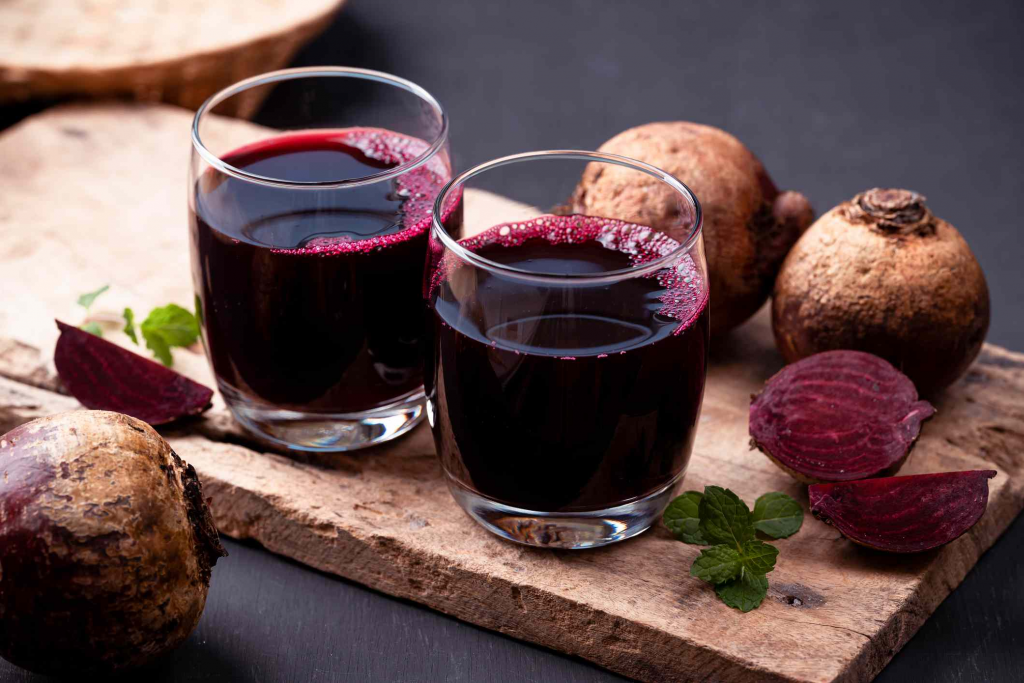
Why Beet Juice Is Considered Helpful
Beets are nutrient-dense and contain unique compounds that support multiple systems in the body.
| Nutrient/Compound | Role in Women’s Health |
|---|---|
| Betaine | Supports liver detoxification, helping process excess estrogen |
| Nitrates | Improve blood circulation, reducing pelvic congestion |
| Iron | Helps replenish blood lost during heavy periods |
| Antioxidants (betalains) | Reduce inflammation and oxidative stress in tissues |
| Folate | Supports hormonal balance and reproductive health |
By supporting liver function, circulation, and antioxidant defense, beet juice may indirectly help women manage cysts and fibroids more naturally.
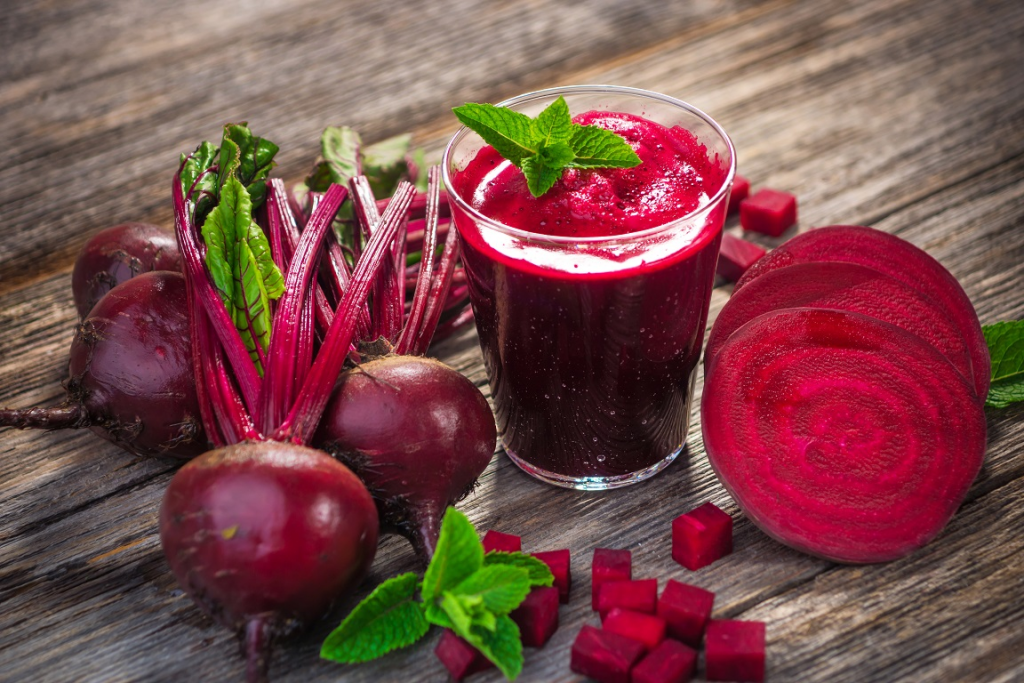
The Link Between Beet Juice and Hormonal Balance
One of the biggest contributors to fibroid and cyst development is excess estrogen. When the liver struggles to metabolize and eliminate this hormone efficiently, estrogen builds up in the body, fueling abnormal tissue growth.
Beet juice, thanks to its betaine content, promotes healthy liver detoxification. By assisting the liver in breaking down excess estrogen, it may help reduce the growth environment for fibroids and cysts.
Additionally, the improved blood circulation from beet nitrates may help reduce congestion and discomfort in the pelvic area, which many women with fibroids experience.
How to Prepare Beet Juice for Women’s Health
Beet juice can be enjoyed on its own or combined with other health-boosting ingredients.
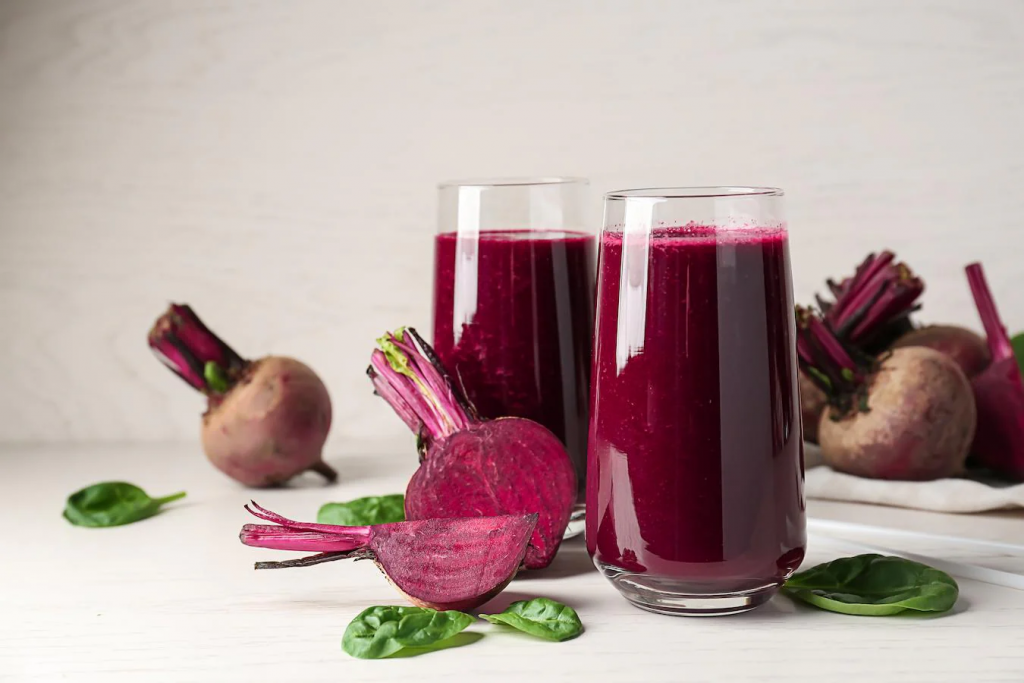
Basic Beet Juice Recipe
- 2 medium beets (washed, peeled, chopped)
- 1 apple (for sweetness)
- 1 carrot
- ½ lemon (juice only)
- Small piece of ginger (optional, for anti-inflammatory benefits)
Blend or juice the ingredients until smooth. Drink fresh, preferably in the morning on an empty stomach.
Suggested Routine
- Drink ½ to 1 cup daily for several weeks.
- Pair with a balanced diet rich in leafy greens, whole grains, and lean proteins.
- Avoid excess processed sugar and alcohol, which can worsen hormonal imbalance.

Real-Life Examples and Traditional Use
In Eastern Europe, beet juice has long been considered a women’s health tonic. Generations of women drank it to support menstruation and recover from blood loss. In natural wellness communities today, many women report that consistent use of beet juice helps ease heavy periods and improve energy levels.
Case example: A 38-year-old woman dealing with fibroid-related fatigue shared that after drinking beet juice daily for three months, she noticed lighter cycles and improved energy. While not a replacement for medical care, beet juice supported her overall well-being and gave her a natural sense of control.
Other Lifestyle Tips to Support Fibroid and Cyst Health
While beet juice is powerful, it works best when combined with lifestyle changes:
- Eat a hormone-friendly diet: Include flaxseeds, cruciferous vegetables, and omega-3-rich foods.
- Exercise regularly: Movement improves circulation and reduces estrogen dominance.
- Manage stress: Chronic stress raises cortisol, which can disrupt hormonal balance.
- Stay hydrated: Water supports detoxification and healthy blood flow.
Safety and Precautions
- Beet juice can temporarily turn urine or stool red—this is harmless.
- People with kidney stones should moderate intake due to oxalates.
- Pregnant or breastfeeding women should consult a doctor before starting concentrated beet juice routines.
- Always use beet juice as a complementary approach, not a sole treatment.
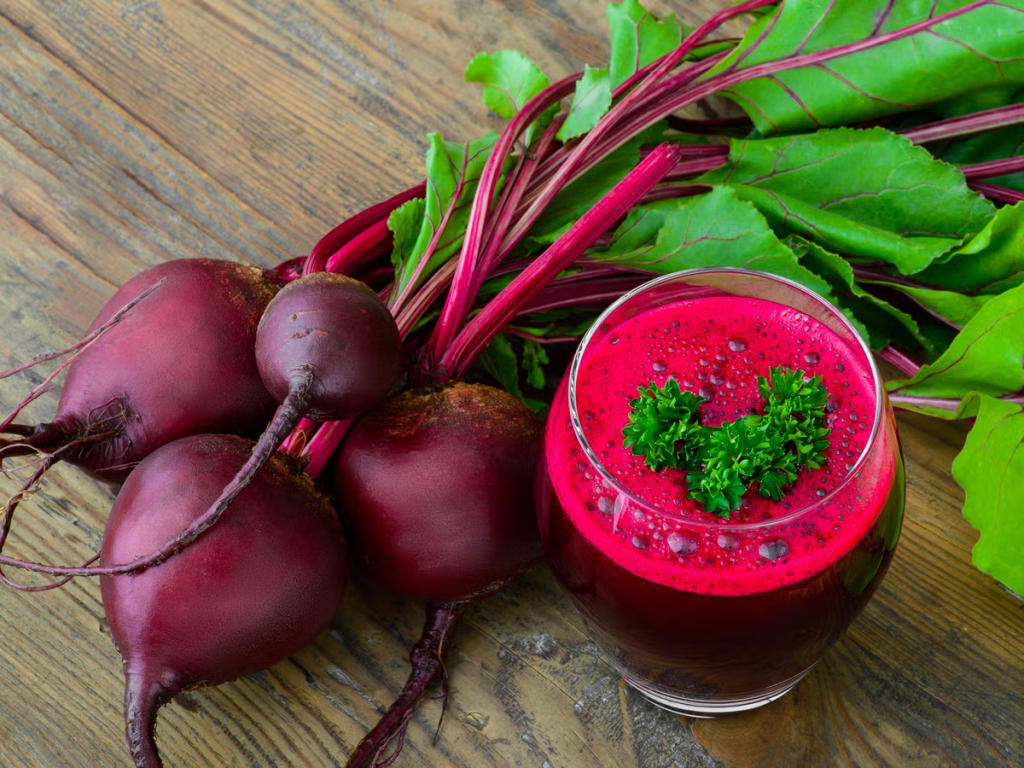
Conclusion
Beet juice is more than just a colorful drink—it’s a natural ally for women dealing with cysts, fibroids, and hormonal imbalances. By supporting liver detoxification, improving circulation, and replenishing iron, it provides a foundation for better reproductive health. Combined with healthy lifestyle habits, beet juice can become a powerful part of your wellness journey.
Frequently Asked Questions
Can beet juice shrink fibroids or cysts completely?
No, beet juice is supportive but not a cure. It may help manage symptoms and improve overall health.
How long should I drink beet juice to see benefits?
Consistency is key. Many women notice improvements within 6–12 weeks of daily use.
Can beet juice replace medical treatment?
No. It should be used as a supportive dietary addition alongside professional medical advice.
This article is for informational purposes only and should not replace professional medical advice. Always consult a healthcare provider for diagnosis and treatment of gynecological conditions.




